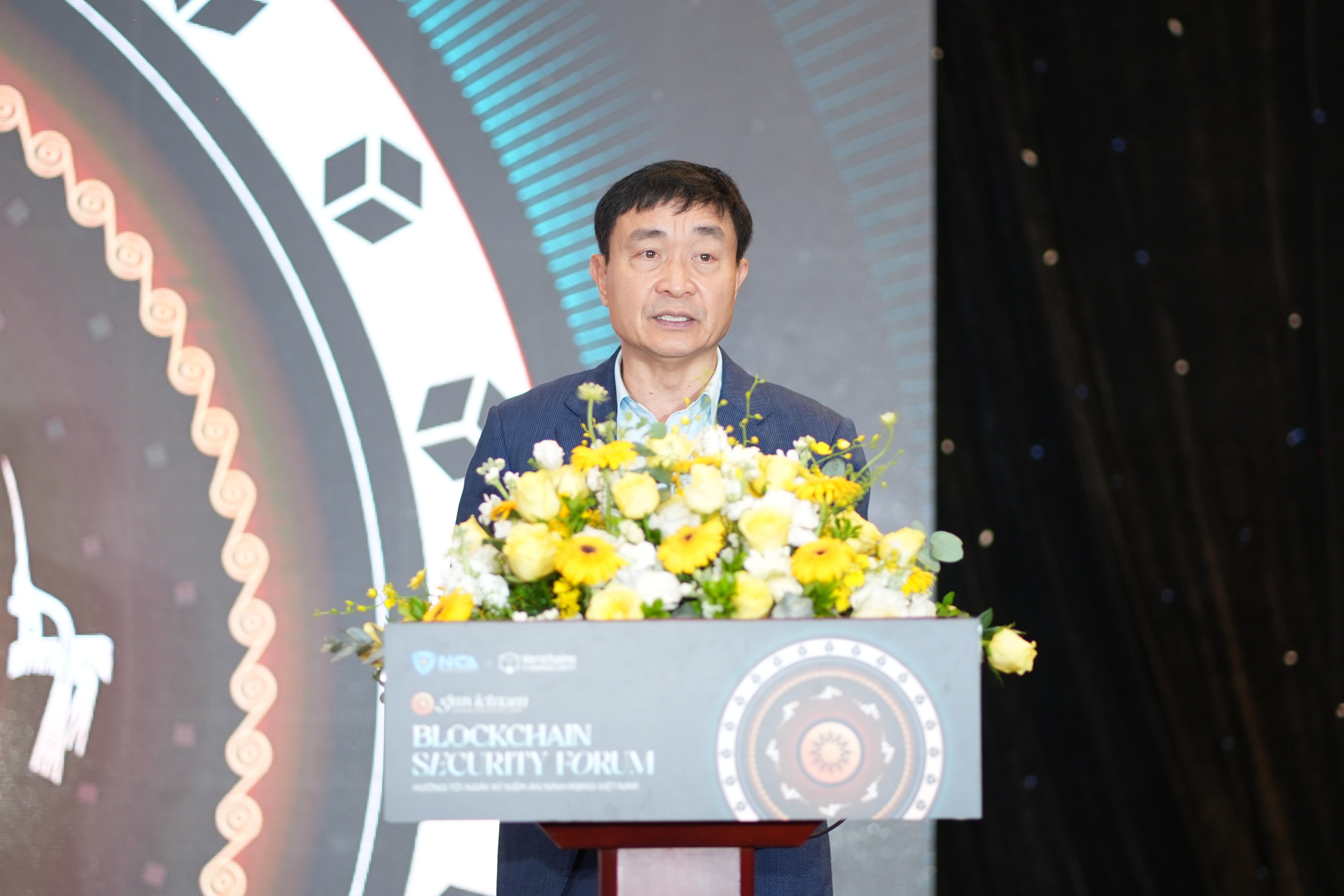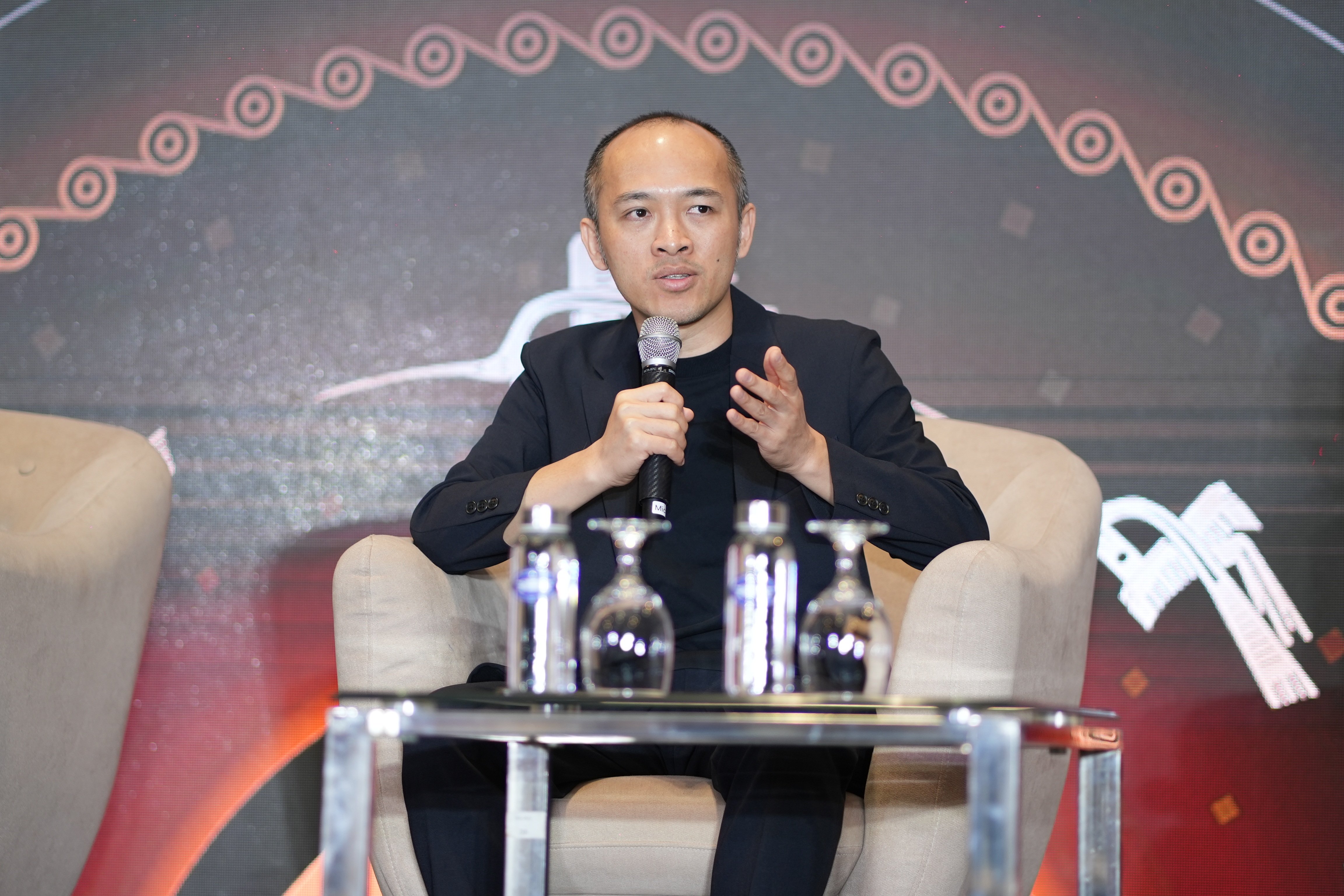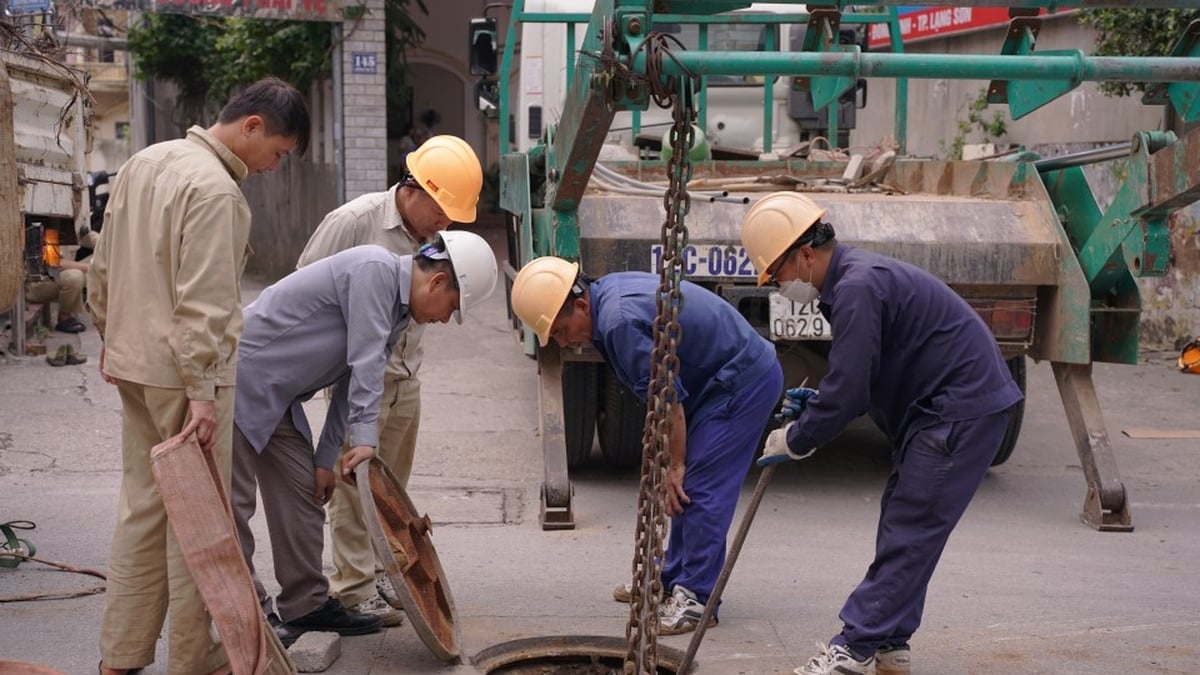On the morning of August 1, at the National Convention Center, the National Cyber Security Association (NCA) coordinated with Verichains Company to organize the GM Blockchain Security Forum 2025.
This is part of a series of activities towards Vietnam Cyber Security Day (August 6, 2025).
Billions of dollars in damage
According to statistics from Chainalysis, from 2020 to February, there were 657 attacks on blockchain systems globally, causing estimated losses of up to $12.8 billion.
In the first 6 months of the year alone, the damage reached 2.17 billion USD, surpassing the whole year of 2024.
Some major attacks involving Vietnamese-origin platforms include Sky Mavis (Ronin) in 2022 causing losses of over $600 million and KyberSwap in 2023 with losses of around $50 million.
Speaking at the event, Lieutenant General Nguyen Minh Chinh, Permanent Vice President of the NCA, pointed out that attacks on smart contracts, e-wallets and blockchain bridges have caused billions of dollars in damage globally. In particular, users and platforms from Vietnam have also been affected and have not been protected by Vietnamese law.
Lieutenant General Nguyen Minh Chinh, Permanent Vice President of the National Cyber Security Association (Photo: NCA).
According to Lieutenant General Nguyen Minh Chinh, in the context of Vietnam entering the digital age, the era of national growth with the goal of 2030, blockchain is also one of the contents of digital transformation to form an important development infrastructure for many economic sectors.
“We also have to follow the world, especially in industries such as banking and finance, logistics, supply chain, digital asset registration, healthcare, education, and even state administration. Blockchain will be widely applied in this era,” he said.
In addition, criminal organizations take advantage of decentralization and anonymity to launder money, illegally raise capital, and issue fraudulent tokens.
Many projects disguise themselves as technology but are actually multi-level marketing models, attracting users with little technical knowledge, causing serious financial damage and social trust.
Therefore, cyber security is an inseparable part of national digital security in the digital age.
Propose 3 strategies
To develop Vietnam's blockchain ecosystem safely, healthily and sustainably, Lieutenant General Nguyen Minh Chinh pointed out the need to focus on 3 strategies.
First, design a secure ecosystem from the ground up. Every layer of technology from blockchain infrastructure, smart contracts, custodial wallets, and identity systems needs to have security, encryption, and monitoring standards built into the security design, and should be a default component, not a stopgap solution.
Second, to improve early detection and rapid response capabilities, it is necessary to establish a warning mechanism and share information for cross-sectoral response among parties. Each platform has a clear crisis handling process from detection, transparent handling, and recovery on that platform, gradually forming proactive defense capabilities for the entire digital asset ecosystem.
Third, ensuring compliance with laws and international standards, development must be associated with regulations on anti-money laundering, personal data protection, capital flow control, while actively participating in the process of standardizing technology and perfecting the legal framework, creating a foundation for transparent and sustainable development.
Roundtable discussion at the event (Photo: NCA).
“The synchronous implementation of the three pillars will help Vietnam both control risks well and effectively take advantage of breakthrough development opportunities that blockchain and digital assets bring in the coming era and the next decade.
Blockchain is a breakthrough technology, but if it is not accompanied by risk control, legal compliance and user safety, it will become a loophole for high-tech crime, destabilize the market and erode social trust," Lieutenant General Nguyen Minh Chinh expressed.
Vietnam has the capacity to become a blockchain security “powerhouse”
At the roundtable discussion, Mr. Vu Ngoc Son, Head of Technology and International Cooperation (NCA) shared: “Although the blockchain system is highly complex and vulnerable to attacks due to the openness of the source code, Vietnam possesses an extremely important advantage: the mathematical and logical thinking of the engineering team”.
Mr. Son emphasized that the perseverance and meticulousness of Vietnamese people when analyzing source code is a key factor in finding security holes, and in fact, Vietnamese experts have found holes that the world's three leading security companies could not detect.
Sharing the same view, Mr. Nguyen Le Thanh affirmed that Vietnam always has very good quality information security human resources. Many Vietnamese experts are holding important positions in large technology corporations in the world.
Mr. Thanh said that the names of Vietnamese cybersecurity experts appear regularly in global competitions and bug bounty programs.
One of the factors that helps enhance Vietnam's reputation in the international market is the role of companies in global security incident investigations.
According to Mr. Thanh, after major investigations such as the $1.5 billion Bybit incident, Verichains has been publicly recognized as a trusted partner by international exchanges.
“To maintain and develop this advantage, it is important to have a playground to develop experts. I hope that the Government's policies in recognizing blockchain as a strategic technology and digital asset will create a solid foundation for Vietnamese cybersecurity experts to develop their capabilities,” Mr. Thanh expressed.
Mr. Vu Ngoc Son, Head of Technology and International Cooperation, National Cyber Security Association at the roundtable discussion (Photo: NCA).
For Vietnam to truly become a blockchain security hub, Mr. Vu Ngoc Son proposed four strategic pillars that need to be effectively implemented:
Legal framework: Is the foundation for all sustainable activities.
Technology and technical standardization: Digital exchanges also need to have the same cybersecurity standards as the traditional banking industry.
Human factor: Management, development and users all need to be raised with cybersecurity awareness and understanding.
International cooperation: This is an indispensable factor in the context of attack groups operating globally. International cooperation helps countries share intelligence and criminal databases, thereby better protecting users.
Source: https://dantri.com.vn/cong-nghe/an-ninh-blockchain-dong-vai-tro-quan-trong-de-viet-nam-phat-trien-20250801141551202.htm







































































































Comment (0)